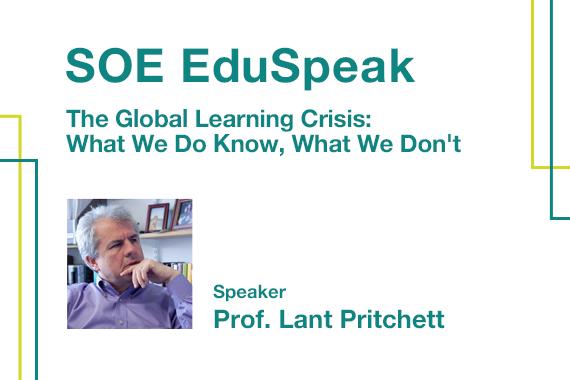
The last 50 years have seen a massive, and continuing, rapid expansion of time children serve inside a building called a school. But the goal of schooling was not just time served but learning gained. On that score we do know that there is massive variation around the world in what skills and competencies children are gaining in schooling, and in many parts of the world that learning is so low it can legitimately be called a learning crisis. While we know a fair bit about the proximate determinants of learning, what we don't know is how to re-align systems from being aligned around the simple expansion of access to the more complex task of having education systems coherent for learning. Recent research is giving some new negative and positive hints as to the way forward.
To further this conversation, the LUMS Syed Ahsan Ali and Syed Maratib School of Education is hosting Professor Lant Pritchett, who will be presenting on ‘The Global Learning Crisis: What We Do Know, What We Don't’. The talk is jointly organised by the Mahbub Ul Haq Research Centre at LUMS, Harvard Club of Pakistan, Oxbridge Society of Lahore, The Harvard Mittal South Asia Institute, Centre for Economic Research in Pakistan (CERP) and RISE Pakistan.
Date: February 7, 2020
Time: 4:00 – 6:00 pm
Venue: B-3, Suleman Dawood School of Business, LUMS
Speaker’s Profile:
Lant Pritchett is a development economist from Idaho. He graduated from BYU in 1983 and from MIT with a PhD in Economics in 1988. He worked with the World Bank from 1988 to 2007, living in Indonesia 1998-2000 and India 2004-2007. He taught at the Harvard Kennedy School from 2000 to 2018 (on leave from 2004-2007, 2012-13, 2018-2019) where he was, at times, the Faculty Chair of the MPA/ID Degree program. He has published over a hundred books, journal articles, working papers with over fifty different co-authors and has over 38,000 citations on development topics from education to economic growth to state capability to labor mobility (and more). He is currently affiliated with Oxford’s Blavatnik School of Government.










